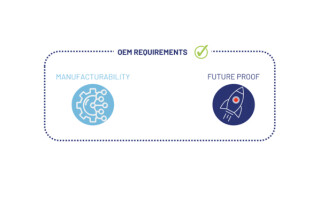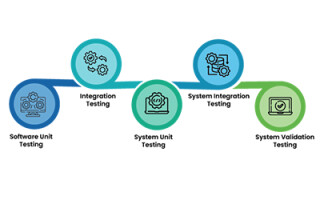Rugged Tablet Computers for Healthcare Applications
April 17, 2019
Blog

Rugged medical tablets can be used to streamline operations in hospital halls, waiting rooms or nurse stations for communicating and documenting patient information.
Technology has long played an imperative role in streamlining hospital operations and improving patient care. In hospital environments, performance, reliability and accuracy are imperative. From medical imaging to patient data, the hospital environment is a complex ecosystem that requires advanced technology to keep it running smoothly. With the rise of the Internet of Things (IoT), the healthcare industry sees a lot of new possibilities for medical care, diseases treatment and research.
Rugged medical tablets can be used to streamline operations in hospital halls, waiting rooms or nurse stations for communicating and documenting patient information, allowing paramedics and nurses to instantly access and keep patient records.
There are several examples of where rugged tablet computers find its application in healthcare:
Patient care - Paper-based medical records are gradually fading. Its electronic counterparts - tablet computers come to replace them. With portable tablet computers nurses can easily access patient information any time from any place. If needed, mobile computers can also retrofit medication scheme and doctor prescriptions. With wireless functions, nurses can also contact doctors for advice, record and share patient information in real time. This improves efficiency and saves time for regular checkups.
Emergency services - Ambulance services are always on duty. Devices in ambulance serve for patient monitoring and reporting, or route navigation. Usually tablets switch between vehicle and field work, and require vehicle docking stations to allow devices to be powered from the vehicle, provide additional interfaces and just as a convenient mounting solution inside the moving vehicle. Right devices onboard result in faster, more efficient and superior care for emergency patients.
Lab analysis - Similar to patient care applications, laboratories try to reduce paperwork and utilize portable computers for experiments and research. However, a possible exposure to dangerous chemicals and biological contaminants is a potential threat to electronic devices. They must be rugged enough to withstand regular cleaning and disinfection.
How to Choose a Tablet Computer for Medical Applications
Deployment of portable devices opens unlimited opportunities for its application in medical environment and guarantee safety, long life-time and stable performance. However, not all of the devices are suitable for medical applications. When choosing the most suitable medical tablet for hospital and clinic environments there are some key features to consider.
Medical certification
First of all, the device must have medical certifications IEC/ EN 60601-1, 60601-1-2 that can reduce the risk of electrical shock and guarantee its safety for hospital applications. By passing the certification, a manufacturer can assure that the devices perform safely and effectively without causing harm and/ or electromagnetic disturbances in its appropriate operating environment.
Antibacterial housing
Next, the housing of the rugged tablet should be enhanced with antibacterial properties to minimize bacteria growth, and be resistant to a variety of cleaning chemicals with waterproof design that allows cleaning the surface with wipes, sprays and liquids without a concern of affecting the internal components.
Anti-glare solution and optical bonding
Medical applications have special requirements to screen visibility and the quality of images. An anti-glare solution on tablet glass helps diffuse the glaring light, reducing its intensity and making it easier for the observer to see the correct image and provide perfect readability at extreme viewing angles. One more feature to look for when choosing touchscreen computers is optical bonding. The screen with optical bonding technology usually results in higher brightness, better clarity and resistance to scratches.
Ruggedness
If installed on a medical cart or inside an ambulance, the tablet computer and docking station should be able to withstand strong vibrations from the moving vehicle. No parts can be disconnected or loose.
These are just a few distinguishing features of ruggedized devices over consumer-grade. Although the initial investment of choosing the rugged device may be higher, but the design guarantees longer life-time that results in lower Total Cost of Ownership (TCO) in the long term.
Summary
The development of modern technologies is already transforming the healthcare industry. The tablet computers offer a new generation of convenience for healthcare professionals, help to collect and transfer data, check the diagnosis and update patient information in real time. But not all of the devices available on the market are suitable for such a demanding environment. When choosing the tablet computer for healthcare it is important to consider safety, longevity and functionality. Make your choice carefully.




